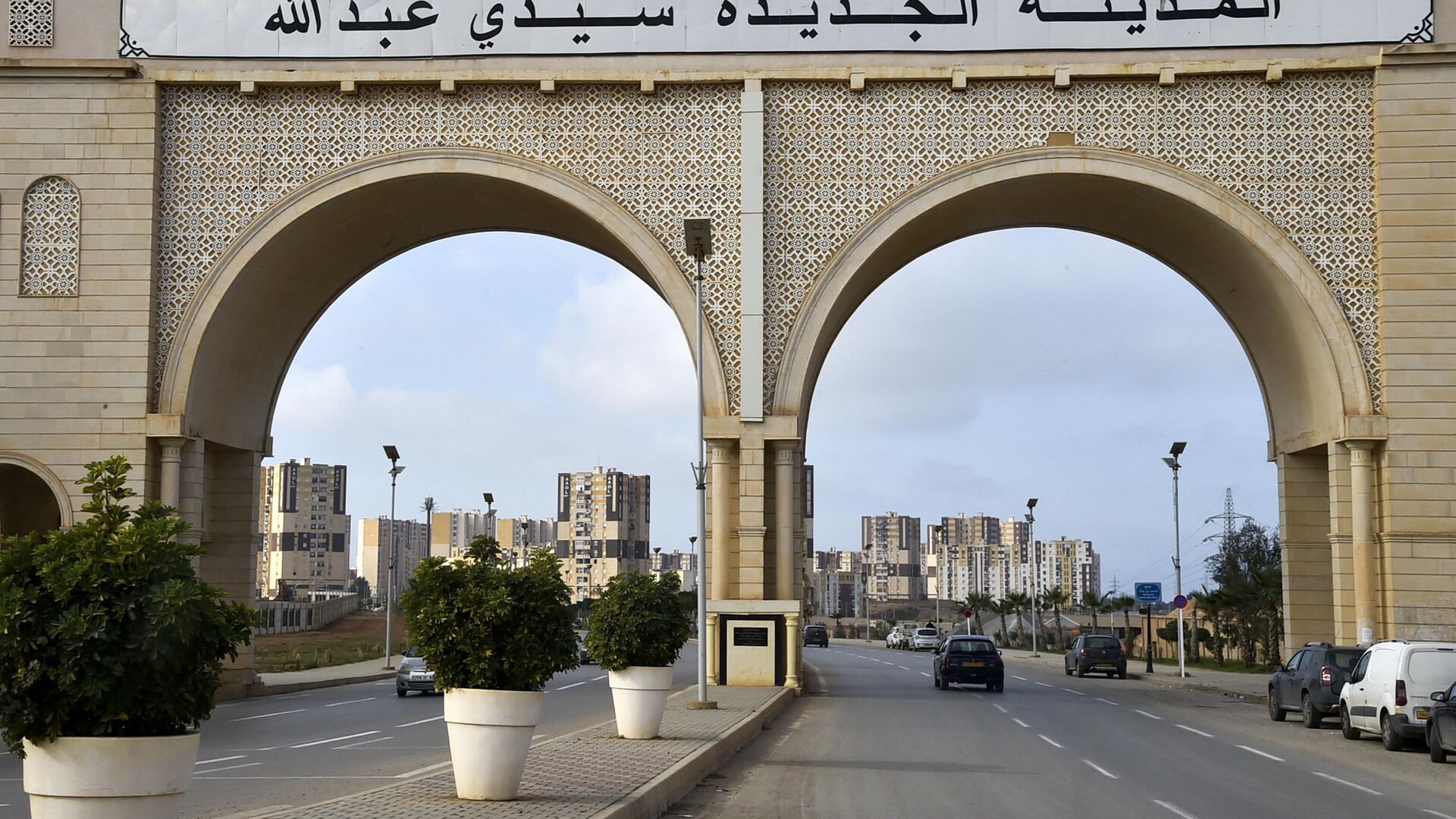https://sputnikglobe.com/20230409/no-auction-france-returns-rare-manuscript-to-algeria-1109290877.html
No Auction: France Returns Rare Manuscript to Algeria
No Auction: France Returns Rare Manuscript to Algeria
Sputnik International
The Abdelkader manuscript – a rare book, dating from the seventeenth century, returned to Algeria from France, which had seized it during colonization.
2023-04-09T11:08+0000
2023-04-09T11:08+0000
2023-04-10T08:04+0000
africa
algeria
france
treasure
ancient treasure
art
colonialism
colonization
https://cdn1.img.sputnikglobe.com/img/07e7/04/09/1109293453_0:160:3072:1888_1920x0_80_0_0_a15f73a4f586faa9d1fe6ec75e3e68c2.jpg
Algeria has managed to recover the Abdelkader manuscript – a rare book dating from the seventeenth century that was seized by the French during colonization, Algeria's Foreign Ministry has declared.The Islamic manuscript written in Arabic was created in 1659. It was seized from one of the followers of independence leader Emir Abdelkader in 1842 during a raid, then brought to France by Lieutenant Blanry, an officer of the African Army.The book was to be auctioned in France before the auction was canceled thanks to the mobilization of the authorities and the Algerian diaspora in France, which wished to see the manuscript returned. This success was welcomed by Algiers, which recalled the importance of repatriating such national treasures, the Algerian Ministry of Foreign Affairs stated.Restitution of stolen objectsThe restitution of works looted during the colonial period has become a vital issue for several African countries of late.Egypt, in particular, has made its voice heard on several occasions on this issue. In January, the United States returned one of the largest wooden sarcophagi ever discovered to Cairo, dating from the Lower Pharaonic period. Ireland did the same in December, also returning a sarcophagus and the remains of mummies.At the same time, Cairo now seeks that the famous Rosetta stone, thanks to which the French Egyptologist Jean-Francois Champollion deciphered the hieroglyphs, be returned. This treasure, brought to France after Napoleon's expedition in Egypt, is today in the British Museum. A petition to return it home has collected more than 110,000 signatures.In December 2022, the University of Cambridge likewise announced plans to return 116 looted artifacts, known as the Benin bronzes, to Nigeria.Thousands of bronzes were stolen by the British military during the looting of Benin (in modern-day Nigeria) in 1897. Later, historical objects were scattered around the world and can be found in numerous collections in the West.
https://sputnikglobe.com/20230401/pink-diamond-from-botswana-could-set-record-at-auction-media-say-1109032792.html
africa
algeria
france
Sputnik International
feedback@sputniknews.com
+74956456601
MIA „Rossiya Segodnya“
2023
Sputnik International
feedback@sputniknews.com
+74956456601
MIA „Rossiya Segodnya“
News
en_EN
Sputnik International
feedback@sputniknews.com
+74956456601
MIA „Rossiya Segodnya“
Sputnik International
feedback@sputniknews.com
+74956456601
MIA „Rossiya Segodnya“
era of colonization, abdelkader manuscript, rare book, colonization period, algerian ministry of foreign affairs, treasures restitution, rosetta stone, france's neocolonialism, ancient treasure, treasures auction
era of colonization, abdelkader manuscript, rare book, colonization period, algerian ministry of foreign affairs, treasures restitution, rosetta stone, france's neocolonialism, ancient treasure, treasures auction
No Auction: France Returns Rare Manuscript to Algeria
11:08 GMT 09.04.2023 (Updated: 08:04 GMT 10.04.2023) Much wealth was extracted from African nations during colonization. The restitution of looted items of cultural significance has been widely discussed in recent years.
Algeria has managed to recover the Abdelkader manuscript – a rare book dating from the seventeenth century that was seized by the French during colonization, Algeria's Foreign Ministry has declared.
The Islamic manuscript written in Arabic was created in 1659. It was seized from one of the followers of independence leader Emir Abdelkader in 1842 during a raid, then brought to France by Lieutenant Blanry, an officer of the African Army.
The book was to be auctioned in France before the auction was canceled thanks to the mobilization of the authorities and the Algerian diaspora in France, which wished to see the manuscript returned. This success was welcomed by Algiers, which recalled the importance of repatriating such national treasures, the Algerian Ministry of Foreign Affairs stated.
"The Algerian authorities highly appreciate this patriotic move honoring the members of our community abroad. [...] The recovery of this manuscript and its repatriation are part of the tireless efforts that the highest authorities of the country have not ceased to deploy, in order to recover all the Algerian heritage looted, for the sake of preserving and safeguarding the national memory," said the ministry.
Restitution of stolen objects
The restitution of works
looted during the colonial period has become a vital issue for several African countries of late.
Egypt, in particular, has made its voice heard on several occasions on this issue. In January, the United States returned one of the largest wooden sarcophagi ever discovered to Cairo, dating from the Lower Pharaonic period. Ireland did the same in December, also returning a sarcophagus and the remains of mummies.
At the same time, Cairo now seeks that the famous Rosetta stone, thanks to which the French Egyptologist Jean-Francois Champollion deciphered the hieroglyphs, be returned. This treasure, brought to France after Napoleon's expedition in Egypt, is today in the British Museum. A petition to return it home has collected more than 110,000 signatures.
In December 2022,
the University of Cambridge likewise announced plans to return 116 looted artifacts, known as the
Benin bronzes, to Nigeria.
"The Charity Commission has considered and approved the return of 116 historical objects, often referred to as the Benin bronzes, from the University of Cambridge's Museum of Archaeology and Anthropology to the National Commission of Museums and Monuments of Nigeria," a Cambridge spokeswoman told press.
Thousands of bronzes were stolen by the British military during the looting of Benin (in modern-day Nigeria) in 1897. Later, historical objects were scattered around the world and can be found in numerous collections in the West.



